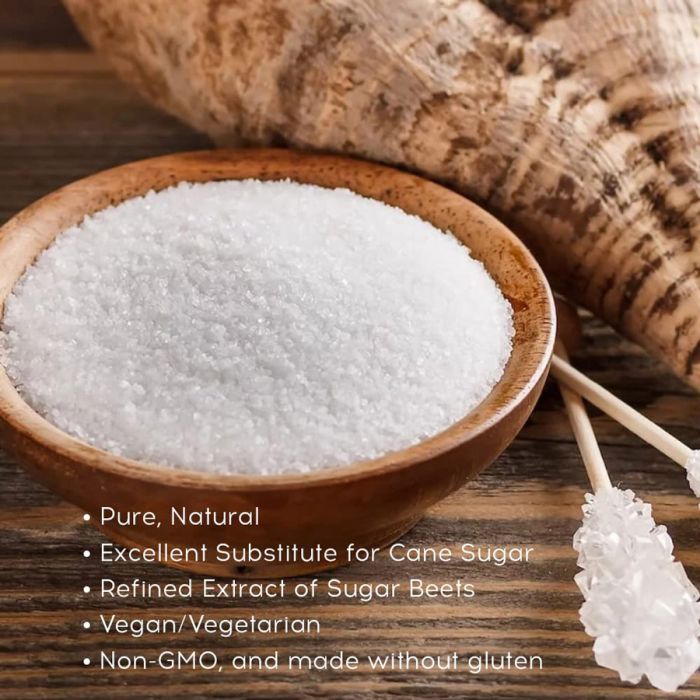A Detailed Take A Look At the Conveniences and Uses of Beet Sugar Vs Cane Sugar for Sweetening Options
In the realm of sweetening, both beet sugar and cane sugar deal distinct advantages and culinary functions, albeit with comparable nutritional profiles. While beet sugar flaunts a neutral taste perfect for numerous dishes, cane sugar improves dishes with subtle sugar touches.
Beginnings and Processing Approaches of Beet Sugar and Cane Sugar
Beet sugar and cane sugar, 2 primary sweeteners, originate from extremely unique plants and undertake different handling methods. Beet sugar is extracted from the sugar beet, an origin vegetable, mainly grown in cooler climates.
On the other hand, cane sugar comes from the sugarcane plant, a tropical grass. Its handling starts with gathering the cane, crushing it to obtain the juice, and then boiling this fluid to form sugar crystals.
Nutritional Contrast: Beet Sugar Versus Cane Sugar

When contrasting the nutritional material of beet sugar and cane sugar, it comes to be noticeable that both types give a similar energy value. Both beet and cane sugar are 99.9% pure sucrose, making them essentially the same in terms of calorie material and nutritional account.
However, mild distinctions might occur from the minimal micronutrient that continue to be after processing, though these are too minor to influence total wellness. For example, cane sugar can maintain traces of molasses, depending upon the degree of refining, which might add minuscule quantities of calcium, iron, and potassium. Beet sugar, on the other hand, normally undergoes a process that eliminates these trace aspects a lot more extensively, resulting in an even purer type of sucrose.
Culinary Utilizes and Taste Profiles
Regardless of their nutritional similarities, beet sugar and cane sugar split especially in their cooking applications and flavor subtleties. Beet sugar, derived from sugar beets, normally has an extremely neutral taste, making it a recommended choice in baking where it effortlessly integrates without changing the taste profile of various other ingredients.
Cooks and home cooks alike choose sugars based upon these characteristics. While both sugars work similarly in terms of sweet taste and physical properties, the mild taste difference can affect the outcome of a dish dramatically, directing the option between beet and cane sugar based upon the desired end result in cooking developments.
Health And Wellness Ramifications of Consuming Beet and Cane Sugars
Although beet sugar and cane sugar are typically utilized mutually in food preparation and cooking, their wellness implications can differ discreetly due to their unique handling methods. Both sugars provide concerning the exact same quantity of calories and carbs per tsp, essentially offering similar energy payments from this source with no inherent dietary benefits. The refining process for each sugar can alter the visibility of trace minerals and compounds, although these variants are usually minimal and not substantial enough to affect one's health and wellness meaningfully.
The primary health and wellness worry about both kinds of sugar concern their payment to excessive calorie intake, potentially leading to weight gain, and associated conditions like kind 2 diabetes mellitus and heart condition when eaten in huge amounts. Regardless of the resource, small amounts is essential in eating beet or cane sugars. Health professionals typically recommend restricting added sugars in any kind of type to preserve optimal health results.
Ecological Impact and Sustainability of Sugar Manufacturing

On the other hand, sugar beet handling often tends to generate huge quantities of pulp waste, which can be repurposed as pet feed or exchanged bioenergy, therefore mitigating some ecological effects (beet sugar vs cane sugar). Ultimately, the sustainability of sugar production pivots on adopting even more environment-friendly farming strategies and waste management practices to reduce the environmental footprint of both sugar kinds

Final Thought
Beet sugar is notable for its sustainability and neutral taste, whereas cane sugar is valued for its abundant taste. Customers need to take into consideration these elements, along with the environmental ramifications of sugar production, to make enlightened selections regarding sugar usage that align with culinary needs and honest values.